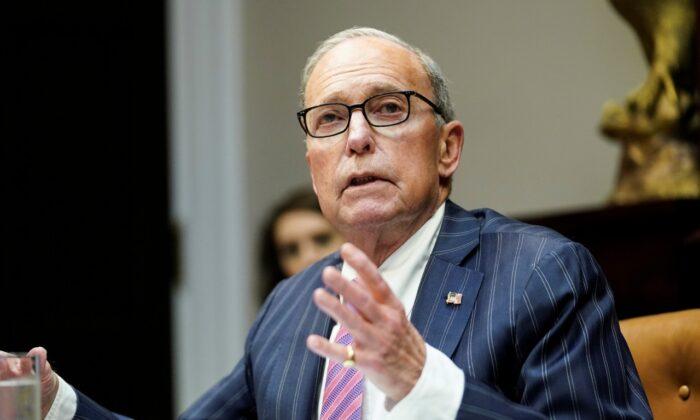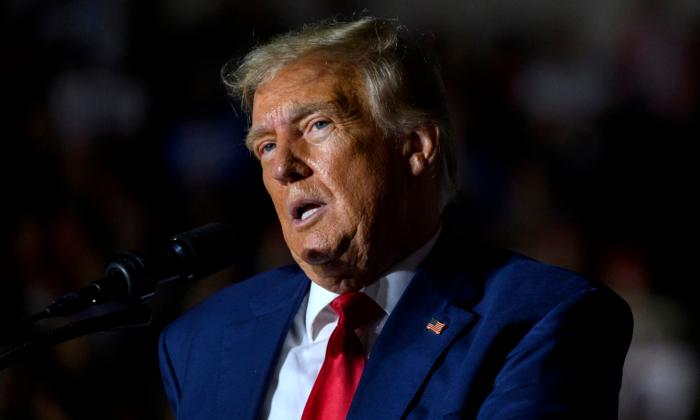White House economic advisor Larry Kudlow suggested that the administration could lure U.S. companies to move back to the United States from China by paying for the entire cost of capital spending associated with relocation.
His proposal was in response to a question about how the United States could reduce its reliance on manufacturing in China.
“I think 100 percent expensing would be a very good thing, and by the way, it would be a very good thing for American companies here at home,” Kudlow said.
The pandemic has disrupted global supply chains and raised questions about countries’ dependence on China as a manufacturing base. Japan on April 9 earmarked $2.2 billion of its economic stimulus package to help its manufacturers shift their production out of China.
Global manufacturing consulting firm Kearney in its annual Reshoring Index released on Tuesday found that the United States imported less from Asian low-cost countries in 2019—a “dramatic reversal” of a five-year trend. This drop came almost exclusively from a collapse in imports from China, likely a direct result of U.S. tariffs on billions of Chinese goods amid the trade war, the report noted.
U.S. imports shifted away from China to other low-cost Asian countries led by Vietnam, it added.
While supply chain developments in 2019 were influenced by the trade war, the pandemic in 2020 is forecasted to be an even greater disruption, one that would lead to companies going “much further in rethinking their sourcing strategies—indeed, their entire supply chains,” the firm predicted.
“Specifically, we expect companies will be increasingly inclined to spread their risks, as opposed to putting all their eggs in the lowest cost basket,” the report said, which has long been in China.
“More fundamentally, we anticipate that the threat of future crises will compel companies to restructure their global supply chains with an eye toward increased resilience, as well as lower risks and costs, as resilience is the key to operating profitably in the face of ongoing disruptions,” the report said.






Friends Read Free